What is the Democracy and the Rule of Law Clinic?
Students will participate in an externship with Protect Democracy, a nonpartisan nonprofit founded by former White House and Department of Justice attorneys and dedicated to preventing our democracy from declining into a more authoritarian form of government.
Protect Democracy accomplishes its mission by working to combat the tactics that authoritarian leaders use to undermine our free, fair, and fully-informed pursuit of self-government, and by pursuing pro-democracy reforms to renew and improve our democratic norms and institutions. Most clinical work will be done remotely.
Students in the Democracy and the Rule of Law Clinic will work with Protect Democracy to safeguard the key features of a democratic society through a variety of tools that advance the organization’s mission, including impact litigation; policy advocacy to members of Congress or other federal offices, as well as other local or state policy makers; strategic partnerships with other groups and individuals who align with the organization’s mission; communications through media outlets, reports, social media posts, and the organization’s website; and Freedom of Information Act requests. The Clinic will focus on issues such as protecting free and fair elections; ensuring the impartial application of the rule of law; safeguarding healthy civic institutions that allow for public participation in political debate; prohibiting official corruption; and challenging government action if it targets marginalized people or groups.
Specific topics and projects will be determined by enrolled students in conjunction with the clinic’s faculty director, Project Democracy’s clinic leaders, and other attorneys at Protect Democracy. Students will be integrated into existing Protect Democracy project teams and take on legal research and writing, legal drafting, policy advocacy and analysis, and other assignments to advance the organization’s advocacy goals. Some examples of such projects include:
- Developing litigation memoranda setting forth proposed legal theories and possible causes of action, and assessing approaches to overcome justiciability barriers.
- Identifying potential plaintiffs for litigation and selecting optimal jurisdictions. Drafting complaints, preliminary injunction motions, dispositive motions and other briefs, including appellate and amicus briefs.
- Drafting white papers, op-eds, blog posts, and letters or memoranda to federal, state, and local government officials.
- Developing proposals and assessing opportunities for legislative reform, and helping advocate for desired reforms.
- Participating in moot courts and assisting counsel with preparation for oral arguments.
- Developing and submitting FOIA requests, including identifying recipients and shaping requests in a manner likely to lead to useful information.
- Drafting letters to agency Inspectors General, the Office of Special Counsel, or state Attorneys General alerting them to potential areas for investigation.
Students need not have any particular background or experience to enroll; Protect Democracy recognizes that there is strength in diversity and strongly encourages students from historically marginalized and other underrepresented and non-traditional backgrounds and from across the political and ideological spectrum to join the clinic. Students will have the opportunity to develop substantive knowledge; build litigation, oversight, oral advocacy, and other practical skills; and gain opportunities for professional development. They will work closely with experienced advocates and subject matter experts.
How do I register?
Enrollment is limited. Although there will be a separate enrollment process for the Spring semester, students who participate in the clinic in the Fall semester may have the option to continue in the Spring, and thus there may be a limited number of slots for new students in the Spring.
This clinic is offered in the Fall and Spring semester. You can learn about the required clinical course component, clinical credits and the clinical registration process by reading the course catalog description and exploring the links in this section.
Sample Schedule
| Morning | Afternoon | Evening |
| 9:00 to 11:00 a.m.: Research legal issues regarding standing and justiciability for potential litigation challenging [state X] election subversion legislation. 11:00 to 11:30 a.m.: One-on-one zoom check in with project supervisor to discuss feedback on previous week’s assignment and to prepare for afternoon litigation team meeting. | 2:00 to 3:00 p.m.: Join conference call with Protect Democracy litigation team and co-counsel; present initial research findings on standing issues. 3:00 to 5:30 p.m.: Draft sections of white paper on proposed federal legislative changes to restore guardrails against executive branch overreach. | 6:30 to 8:15: Draft background section of complaint for potential election subversion litigation, drawing on notes of client interviews to describe the harms imposed by the challenged policy. |
Meet the Instructors
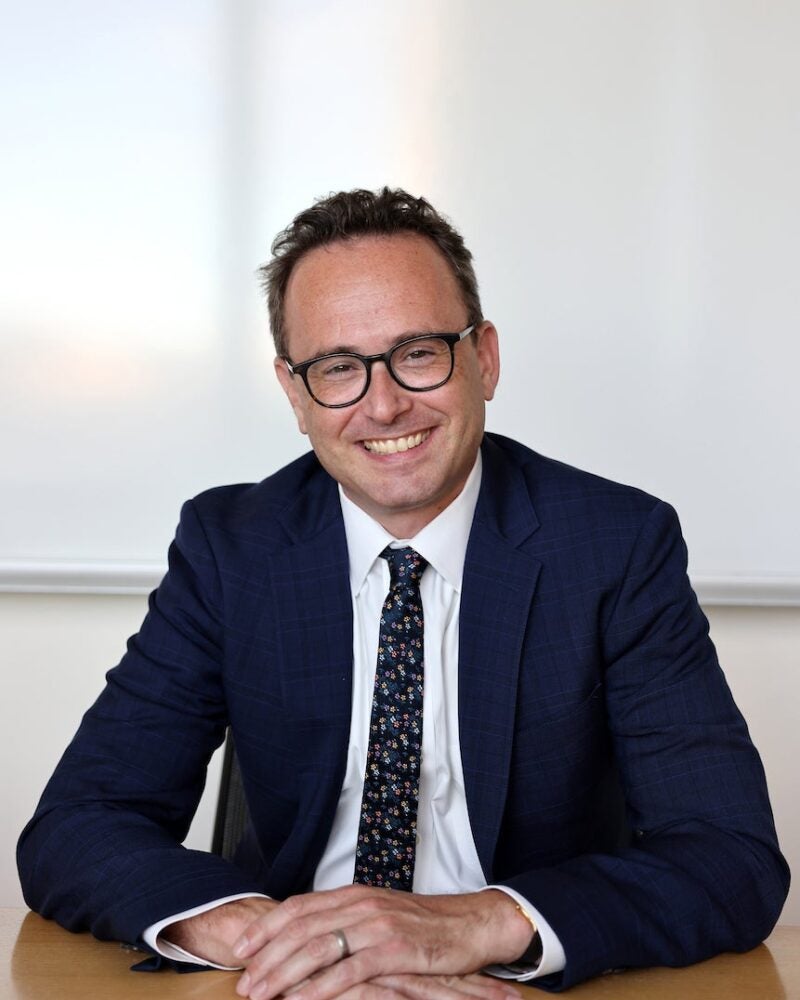
Larry Schwartztol
Faculty Director; Professor of Practice (Fall and Spring)
Schwartztol most recently served in the White House as Associate Counsel and Special Assistant to the President, with a portfolio focused on racial justice and voting rights. Prior to his time in government, Schwartztol spent four years as an attorney at Protect Democracy, where he managed litigation and advocacy aimed at securing free and fair elections. He had previously led HLS’s Criminal Justice Policy Program and served as a staff attorney at the American Civil Liberties Union and a Liman Fellow at the Brennan Center for Justice. Schwartztol earned a B.A. in philosophy from the University of Chicago in 2001. In 2005, he earned his J.D. from Yale Law School. After graduating from law school, Schwartztol clerked for Judge Harry T. Edwards, U.S. Court of Appeals, D.C. Circuit.
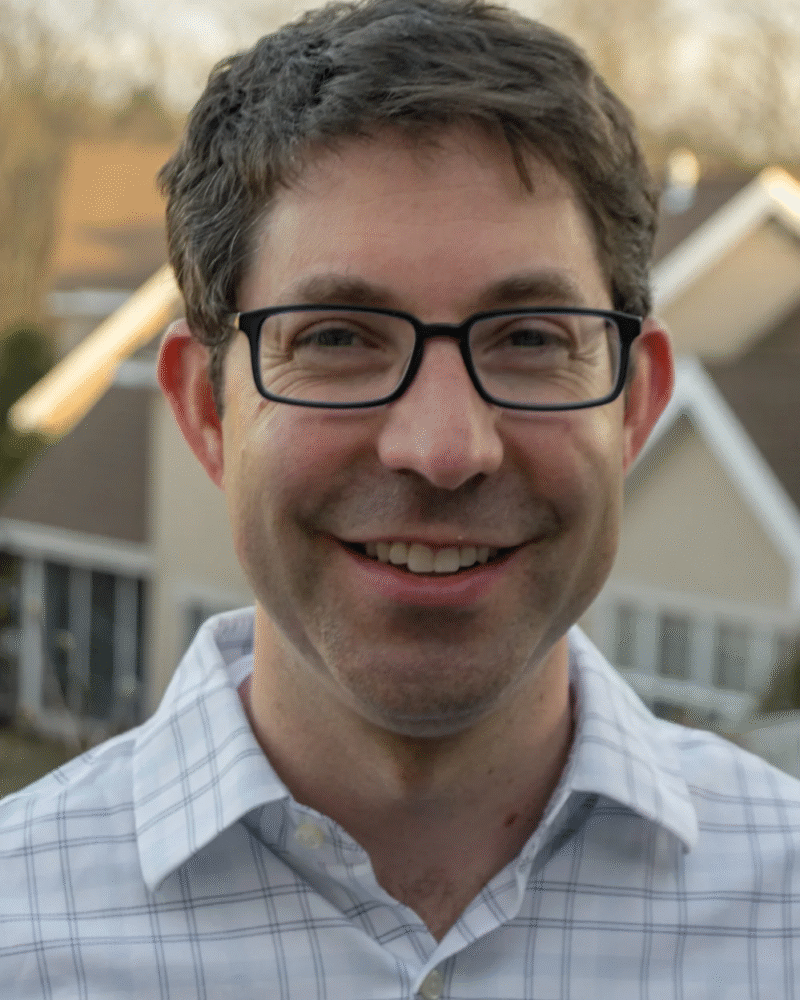
Justin Florence
Lecturer on Law
Justin Florence is the Legal Director of Protect Democracy, a non-profit, non-partisan organization dedicated to strengthening and defending our democratic laws, norms, and institutions. He has previously served in the Office of the White House Counsel as Special Assistant to the President and Associate Counsel to the President. Justin also worked for Senator Sheldon Whitehouse as Senior Counsel on the staff of the Senate Judiciary Committee.
Justin has also worked in private practice — most recently as Counsel in the Supreme Court and Appellate practice at Ropes & Gray LLP, and also at O’Melveny & Myers LLP. Justin also has served as a Fellow at the Georgetown Center on National Security and the Law, as well as a Law Clerk to the Honorable Diana Gribbon Motz on the U.S. Court of Appeals for the Fourth Circuit.
Justin graduated from Yale Law School, where he was Executive Editor of The Yale Law Journal. He holds a Masters degree in American History from Harvard University.
In the News
-
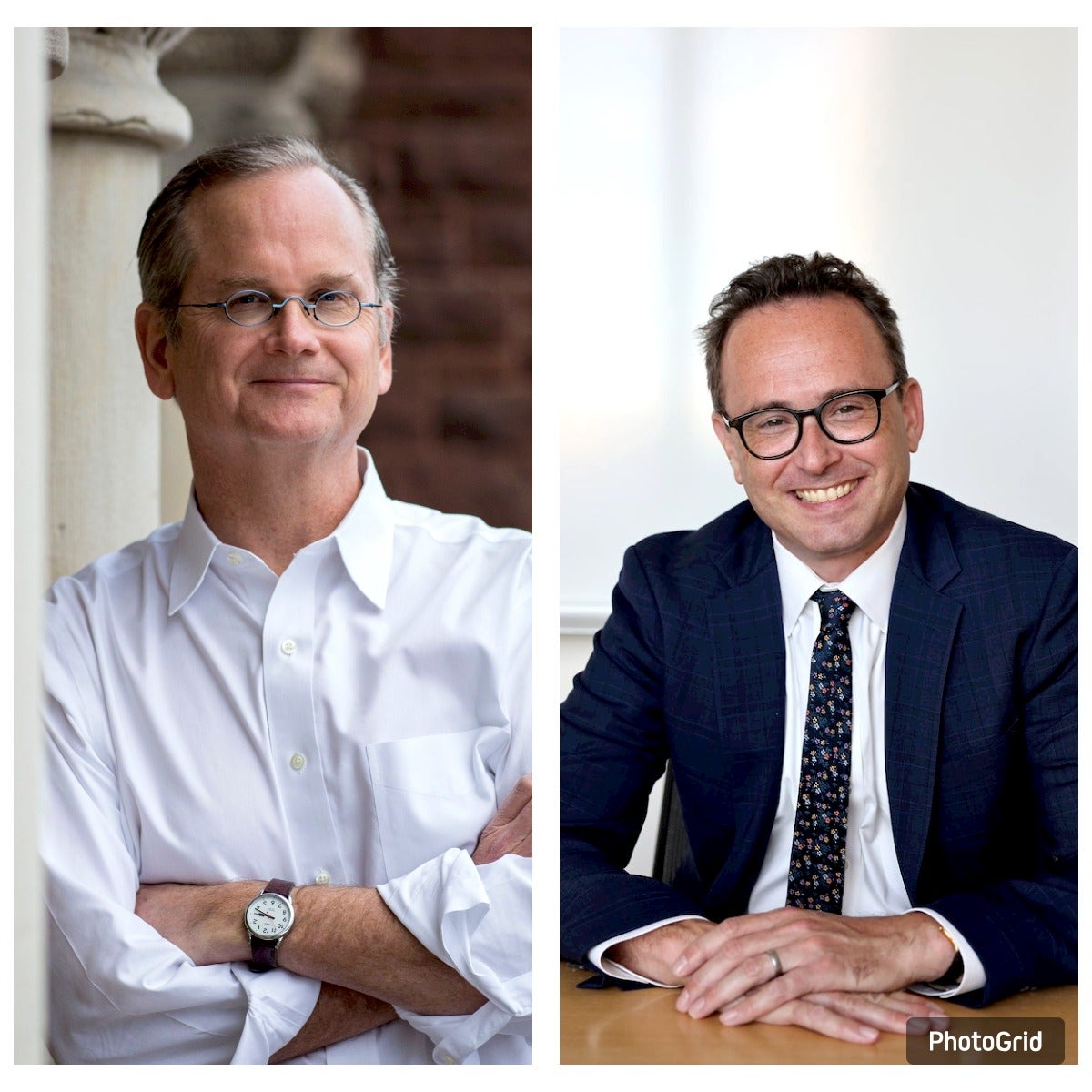
How to Protect a Presidential Election
On the eve of the presidential election and faced with heightened threats of voter suppression, new laws governing election officials’ powers, and the rampant spread of rhetoric around election integrity, Professors Lawrence Lessig and Larry Schwartztol discuss the various legal frameworks that the loser of an election in the U.S. could use to assume office
February 23, 2026
-

Reflections on Arguing Trump v. US
The Journal on Legislation will be hosting a conversation with former Deputy Solicitor General Michael Dreeben on litigating Trump v. US. Please RSVP here: https://docs.google.com/forms/d/e/1FAIpQLSeJ_k7GHxpsmCd2e64JHtimZKxdppSsz9hSV4NjKiARB_mPoQ/viewform
February 23, 2026
-

The Core Defined: Understanding Trump v. US
The Journal on Legislation will be hosting a panel conversation with Professor Klarman, Professor Eggleston, Professor Re, and Professor Shugerman of Boston University on understanding US v Trump and its implications for the law going forward. Please RSVP here.
February 23, 2026
-
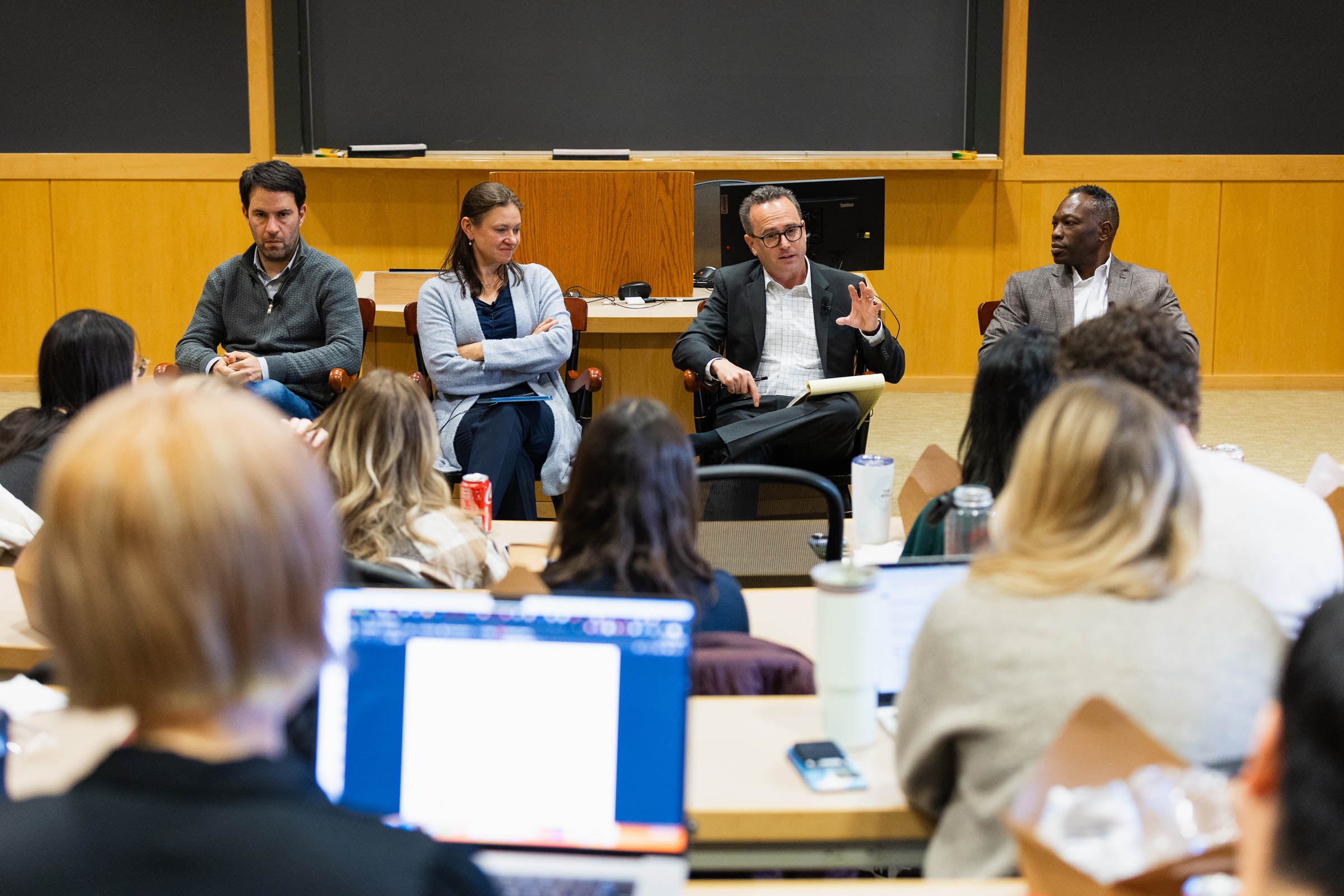
Election law experts provide post-election insights and analysis
From global election trends to failed voting reform initiatives, Harvard election law experts break down last week’s presidential election and what it might mean for the future of American democracy.
November 13, 2024
-
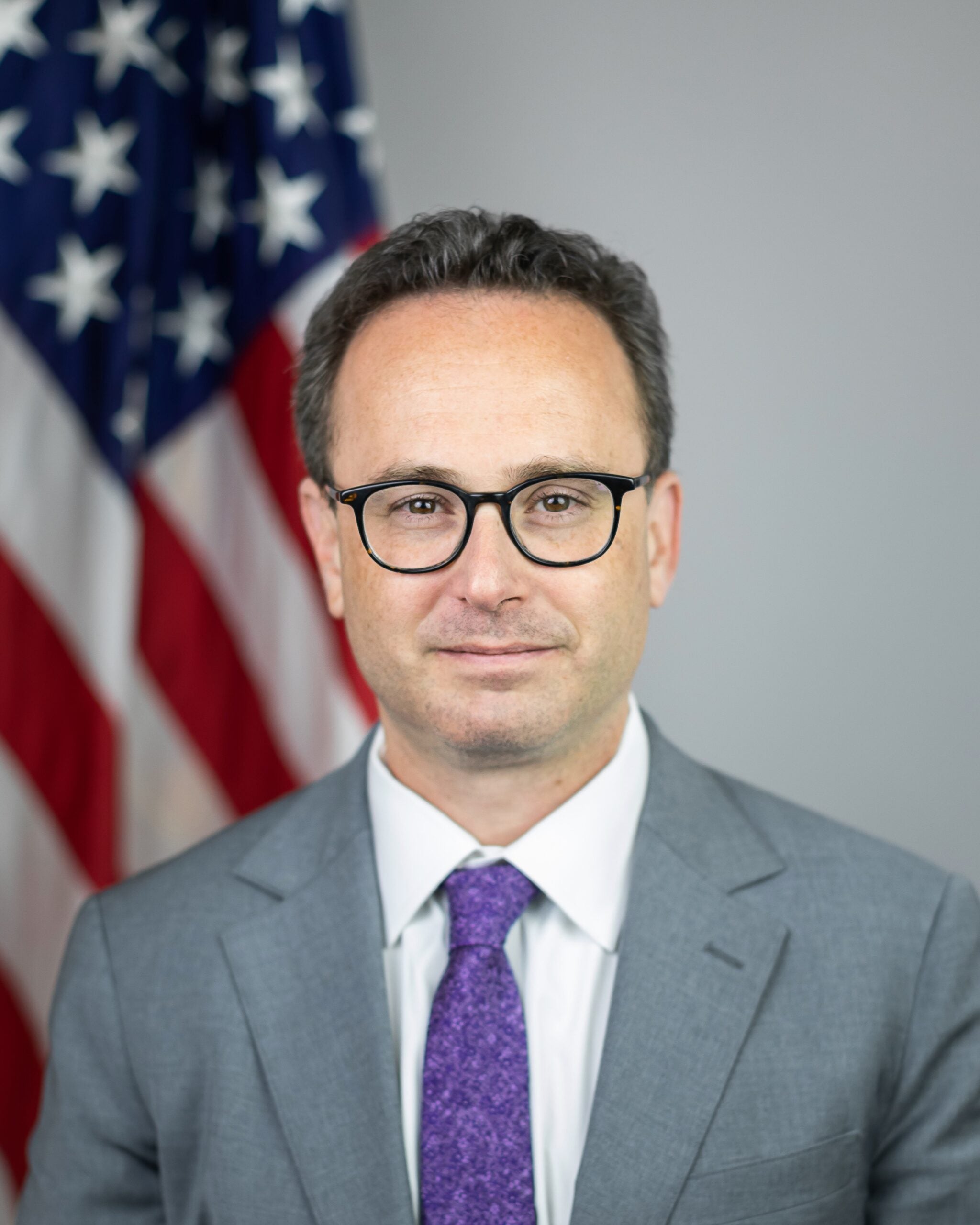
Larry Schwartztol, White House lawyer focused on voting rights and democracy reform, joins Harvard Law School as professor of practice
Larry Schwartztol, White House lawyer focused on voting rights and democracy reform, has been named a professor of practice. He will serve as the faculty director of the Democracy and the Rule of Law Clinic.
July 15, 2022